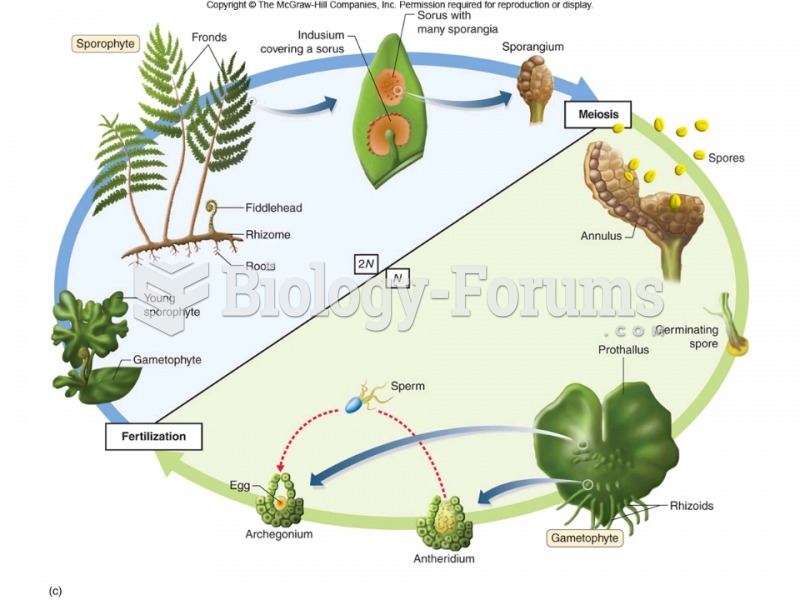|
|
|
Cocaine was isolated in 1860 and first used as a local anesthetic in 1884. Its first clinical use was by Sigmund Freud to wean a patient from morphine addiction. The fictional character Sherlock Holmes was supposed to be addicted to cocaine by injection.
The first successful kidney transplant was performed in 1954 and occurred in Boston. A kidney from an identical twin was transplanted into his dying brother's body and was not rejected because it did not appear foreign to his body.
By definition, when a medication is administered intravenously, its bioavailability is 100%.
It is difficult to obtain enough calcium without consuming milk or other dairy foods.
Nearly 31 million adults in America have a total cholesterol level that is more than 240 mg per dL.







